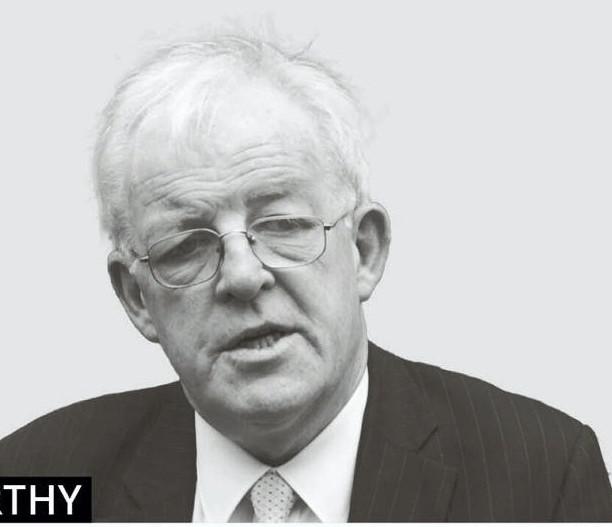All excessive demands on the energy system are in competition with everyone else when there are national emissions caps.
Failure to control demand in one sector will increase the pressure for restrictions on others. A source of failure has already emerged in the case of data centres. Ireland already has far more than needed to meet domestic demand and most of the data centre capacity serves an export market.
They are voracious consumers of 24-hour electricity. Since electricity is the main input into the data centre industry, Ireland has chosen to get into the business of exporting electricity, at a time when generation and transmission capacity are both tight.
The reason for Ireland’s popularity with data centre export companies is intriguing. This is not the only location in northern Europe with a climate that helps the data centres maintain the lower temperatures the server farms require, but it has offered an exceptional welcome.
The low Irish rate of corporation tax, and the tax avoidance opportunities enabled by double-tax treaties with the US in particular, make it attractive for the tech giants to locate here. But there is another ingredient.
It has been Irish policy for decades to load these network costs on consumers in general, sparing the incoming FDI sector
New demand loads on the Irish network are not required to pay the full costs of delivering power from the grid, so-called ‘deep’ connection charges. A substantial portion of your electricity bill goes to cover fuel costs and the capital costs of power stations, but it also pays for the enormous national transmission and distribution network.
It has been Irish policy for decades to load these network costs on consumers in general, sparing the incoming FDI sector.
No other European country is so generous. The policy may have made sense when generation capacity was plentiful and there was little capacity pressure on the grid. But it has been clear for several years that the situation has changed. Both generation and transmission capacity are under pressure and the reliability of power supplies, long a calling card for the IDA in marketing Ireland as an FDI destination, is under threat.
The situation is acute in the Dublin area, where the high-voltage transmission network is barely adequate for existing loads.
The State company responsible for running the system, Eirgrid, has finally made it clear to the Government that there is no spare transmission capacity in the Dublin area and that there should be no more data centres in or near the capital.
Why it took so long for the penny to drop is beginning to emerge. The IDA has been an enthusiast for data centre development down the years and has been remarkably reluctant to admit that the gig is up.
Both generation and transmission capacity are under pressure and the reliability of power supplies, long a calling card for the IDA in marketing Ireland as an FDI destination, is under threat
According to a report posted by RTÉ’s Sandra Hurley, the IDA and the Department of Enterprise, Trade and Employment (DETE) have recently been lobbying the energy regulator, the Commission for the Regulation of Utilities, in favour of accommodating yet more data centres.
In an email from September last released to RTÉ under Freedom of Information, DETE objected to the inclusion in the Climate Action Plan of the following innocuous paragraph: “Implement energy actions under the Government statement on the Role of Data Centres in Ireland’s Enterprise Strategy to ensure that large demand connections are regionally balanced to minimise grid reinforcements.”
Since there is pressure on generation capacity nationally with the ESB struggling to build new gas-fired units as directed, it is not clear where the extra power is to come from, wherever new data centres are located.
The Government is committed to the transition of both road transport and space heating to electricity, the core of the Climate Action Plan, so electricity demand is due to increase sharply for the first time in decades.
What appears to have happened is a failure to integrate energy and climate policy
If energy and climate policy were aligned properly, the Irish authorities would have commenced a go-slow on data centres several years ago, as they were advised to do by the Irish Academy of Engineering.
The data centre lobbyists argue that it can somehow become entirely reliant on renewable power. There are no renewable technologies currently available, or in prospect for many years to come, which can deliver 24-hour electricity to data centres or to anyone else.
Signing long-term contracts with windfarms which have no 24-hour availability is not serious. What appears to have happened is a failure to integrate energy and climate policy.
Certain courses of action that are superficially plausible are just not feasible as a matter of engineering reality.
And yet the IDA, and its parent Department of Enterprise and Employment, has persisted in the promotion of a policy which endangers supply security on the unsupported basis that it is somehow beneficial to the development of the Irish economy.
It should be called before the appropriate Oireachtas committee to explain why the hole it has been digging is not big enough.









SHARING OPTIONS